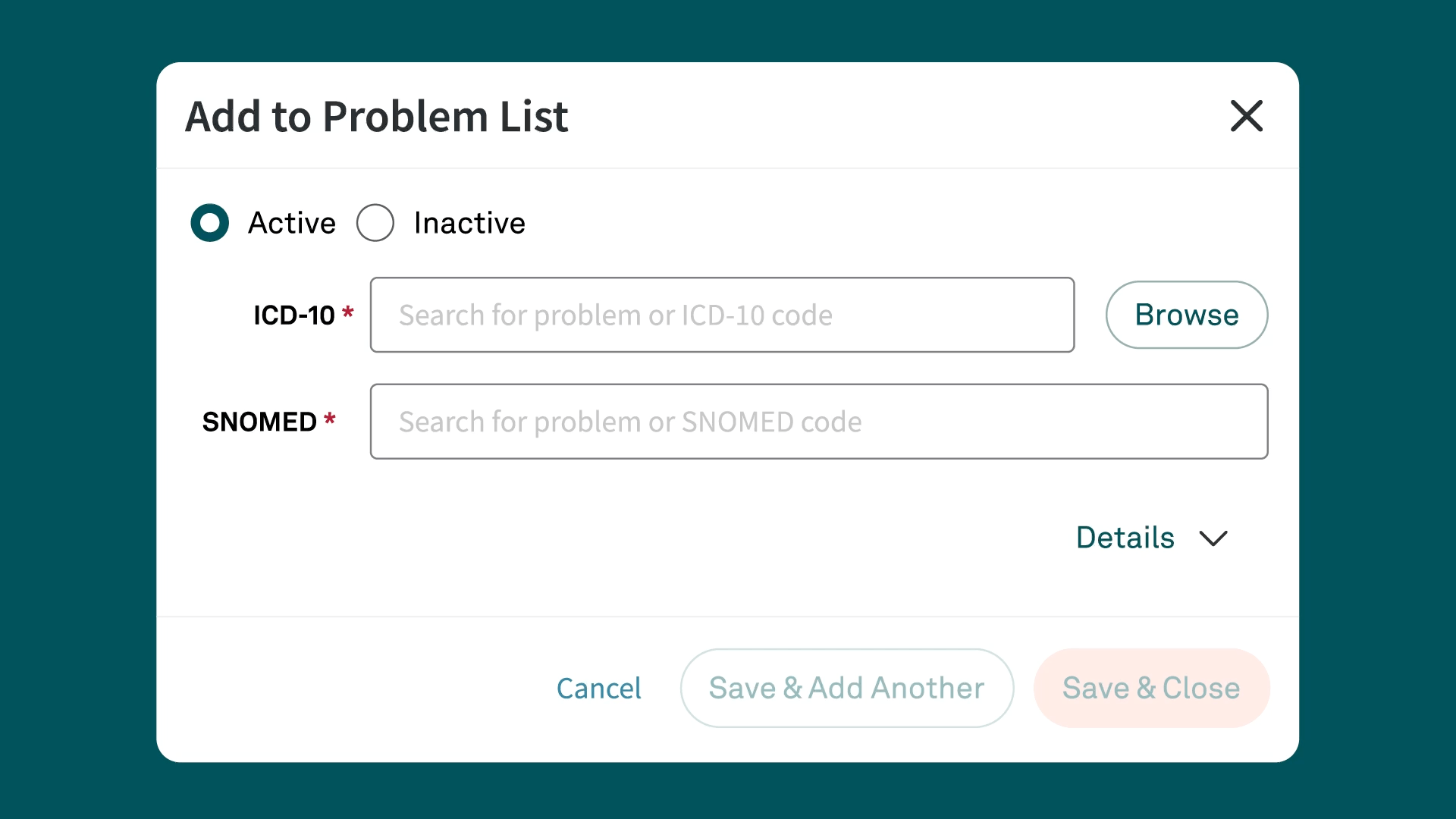ICD-10 Code E78.2
Mixed hyperlipidemia
What is the code E78.2?
E78.2 is the ICD-10-CM code for mixed hyperlipidemia. This code is used by medical professionals to document and bill for a condition characterized by the presence of elevated levels of lipids in the blood, including cholesterol and triglycerides.
Detailed description of E78.2
Mixed hyperlipidemia (E78.2) refers to a lipid metabolism disorder where both cholesterol and triglycerides are elevated. This condition increases the risk of cardiovascular diseases such as coronary artery disease and stroke. It often requires a combination of lifestyle changes and medication to manage effectively.
Symptoms commonly associated with E78.2
Patients with mixed hyperlipidemia may not exhibit any symptoms initially. However, as the condition progresses, they may experience symptoms such as:
- Xanthomas (fatty deposits in the skin or tendons)
- Chest pain (angina)
- Shortness of breath
- Fatigue
- Palpitations
Related and similar ICD-10 codes
- E78.0: Pure hypercholesterolemia
- E78.1: Pure hyperglyceridemia
- E78.49: Other hyperlipidemia
- E78.5: Hyperlipidemia, unspecified
Appropriate usage of E78.2 for billing
E78.2 should be used for billing when a patient is diagnosed with mixed hyperlipidemia. Proper documentation should include clinical evidence of elevated cholesterol and triglycerides. Ensure that the diagnosis is supported by lab results and clinical notes to substantiate the billing.
Instructional guidelines for coding E78.2
- Ensure accurate documentation of lab results showing elevated cholesterol and triglycerides.
- Use E78.2 when the provider has documented that both cholesterol and triglycerides are elevated or when the provider has specifically documented mixed hyperlipidemia
- Include relevant patient history and physical examination findings that support the diagnosis.
- Avoid using this code if the patient only has elevated cholesterol or triglycerides; use more specific codes like E78.0 or E78.1 instead.
Use E78.2 in accordance with the ICD-10-CM guidelines for coding and reporting. Always ensure that the diagnosis is backed by clinical evidence and documented thoroughly in the patient's medical records.
The following inclusion terms are listed under code E78.2:
- Broad- or floating-betalipoproteinemia
- Combined hyperlipidemia NOS
- Elevated cholesterol with elevated triglycerides NEC
- Fredrickson's hyperlipoproteinemia, type IIb or III
- Hyperbetalipoproteinemia with prebetalipoproteinemia
- Hypercholesteremia with endogenous hyperglyceridemia
- Hyperlipidemia, group C
- Tubo-eruptive xanthoma
- Xanthoma tuberosum
If any of these alternative terms are documented in the medical record, you may assign code E78.2.
There is an excludes 1 note found at E78.2 for the following conditions:
- Cerebrotendinous cholesterosis [van Bogaert-Scherer-Epstein] (E75.5)
- Familial combined hyperlipidemia (E78.49)
Due to this instructional note, when the patient has been diagnosed with one of the listed conditions, only the condition noted in the excludes 1 note should be assigned and E78.2 would be omitted.
There is an excludes 1 note found at category E78, Disorders of lipoprotein metabolism and other lipidemias that is applicable to code E78.2 for sphingolipidosis (E75.0–E75.3). This note instructs that when mixed hyperlipidemia is diagnosed with sphingolipidosis, the correct code for sphingolipidosis should be assigned and E78.2 should not be used.
In cases where a patient has a diagnosis of both mixed hyperlipidemia and hypercholesterolemia, only assign code E78.2. Do not assign code E78.00, Pure hypercholesterolemia, unspecified, as the hypercholesterolemia is included in code E78.2 as indicated in the alphabetic index.
Common pitfalls in coding with E78.2
- Incorrect diagnosis: Using E78.2 when only one type of lipid is elevated.
- Insufficient documentation: Failing to document lab results that confirm the diagnosis.
Key resources for E78.2 coding
- CMS ICD-10 Homepage: Provides official resources and guidelines on ICD-10-CM coding.
- WHO ICD-10 Online Browser: Useful for verifying the definitions and relationships between different ICD-10-CM codes.
- American Heart Association Homepage: Offers resources on lipid disorders and their management.
- National Institutes of Health (NIH): Provides in-depth information on hyperlipidemia and related conditions.
Conclusion
E78.2 is an ICD-10-CM code for documenting and billing mixed hyperlipidemia, a condition that requires careful management due to its association with cardiovascular diseases. Proper documentation, adherence to coding guidelines, and awareness of common pitfalls support accurate coding and billing.
Simplify ICD-10 code documentation with Tebra
Tebra’s EHR+ gives you quick searches and Systematized Nomenclature of Medicine (SNOMED) field names for efficient code documentation. Plus, Tebra automatically saves ICD-10 to SNOMED mapping for future searches, streamlining your workflow.

Discover how Tebra helps providers effortlessly document health-related issues and conditions in this detailed post.
Stay Ahead with Expert Healthcare & Billing Insights
Get the latest industry updates, financial tips, and expert strategies — delivered straight to your inbox.
